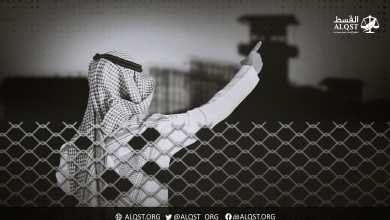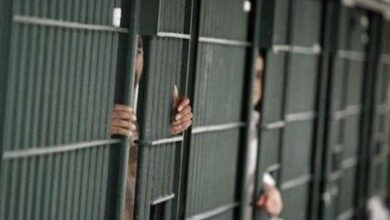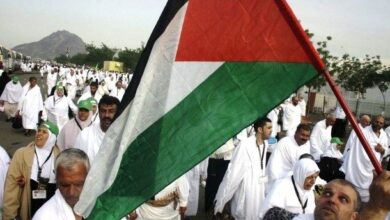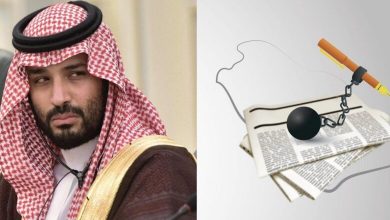Saudi ex-detainees, from prisons cells to open-air dungeons

Sanad Organization for Human Rights said that detainees’ misery does not end with their release from prisons, for their trauma and persecution haunt them down for years to come. Detainees move from smaller cells to larger ones.
The organization said in a report that the issue of arbitrary arrest in Saudi Arabia remains one of the most prominent human rights issues, if not the most prominent at all, as several violations and attacks fall under the crime of arbitrary arrest at the same time.
The organization stated that the suffering of prisoners exceeded the deprivation of freedom; it extended to going through secret trials, endless interrogation sessions, physical and psychological torture, and depriving them of contacting their children and families.
Prisoners’ suffering extends even after release, as deprivations and lack of freedom still haunt the political opponents in one way or another.
In other words, the political detainees are released from the small Saudi prison to the large Saudi prison!
And instead of ending the series of muting votes, travel bans, and secret court sessions, the detainees, are going through an experiment in front of the bars, not far from the ones behind them.
“The ongoing human rights violations against those behind bars became normalized led to extending abuses even outside prison cells.”
The organization tracked a number of human rights issues related to the released detainees, including the issue of the travel ban, the violation of the privacy of the released by tracking and monitoring techniques, the crisis of the continuation of absurd trials or re-arrest, violation of the right to freedom of expression and house arrest.
In February 2021, the Saudi authorities released activist Loujain Al-Hathloul to ban her from travelling for five years.
The organization stressed that the travel ban imposed by the Saudi regime is a violation of human rights and international covenants on civil and political rights.
In addition, it is clear that the Saudi regime uses the travel ban without a legal basis for retaliatory purposes or to pressure individuals to stop their activities or threats.
Furthermore, Saudi law does not allow the government to impose travel bans except in some instances. First, it provides specific exceptional circumstances in which the judiciary can impose travel bans such as drug trafficking or criminal cases threatening society, not concerning freedom of expression, ideas and beliefs.
In addition to the arbitrary ban on travel, the released detainees suffer other violations, such as the ban on writing and expression. The detainees are forced to close their accounts on social media, as was the case with the detained economist Essam Al-Zamil, or Sheikh Abdulaziz Al-Tarifi.
At a time when the power of journalists, opinion writers and sheikhs is in their pens and words – which is most likely the reason for their arrest in the first place – they are stripped of their accurate societal functions after their release to rob them of their active power in society.
Last but not least, the suffering of those released from Saudi prisons continues through the continuation of absurd secret trials and humiliating interrogation sessions.
As their suffering does not end even after they get out of prison. Instead, this is accompanied by threats of re-arrest at any moment, as happened from Sheikh Ibrahim Al-Sukran in 2020 and the Saudi writer Zuhair Kutbi, who were re-arrested for unknown reasons.
The list of violations against the release includes other items such as tracking bracelets and continuous monitoring, even in private personal cases.
Among the dozens of human rights problems in Saudi Arabia, the issue of current or former detainees remains one of the most important issues that trouble society and prevent building trust between the people and their new leadership.
In various peaceful and non-peaceful ways, Crown Prince Mohammed bin Salman and soft and hard powers are trying to gain the trust and love of the people in return for his attempt to distort the image of previous Saudi covenants.
Also, bin Salman’s relentless attempts to be the new symbol continue to disappoint people because of the calamity or stupidity he is doing here or there.
The human rights organization stressed that the quick treatment and resolution of the arbitrary detention crisis and what is related to it in Saudi Arabia is the fastest, easiest and most economical solution to restore the relationship of the Saudi leadership with its loyal people in the first place.





